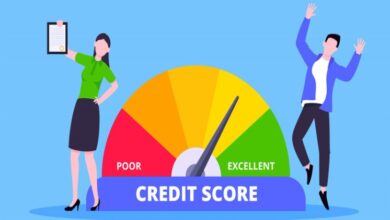best social media brands

When it comes to social media brands, several platforms have gained significant popularity and are widely recognized for their features, user base, and impact on society. While opinions on the “best” social media brands may vary based on personal preferences and priorities, here are some of the most notable and influential platforms as of my last knowledge update in September 2021:
- Facebook: Facebook is the largest social media platform globally, with billions of active users. It offers a wide range of features, including profiles, newsfeeds, groups, pages, messaging, events, and more. It has become a hub for connecting with friends and family, sharing updates, and discovering content of interest.
- Instagram: Instagram is a visually-oriented platform centered around photo and video sharing. It has a large user base and is particularly popular among younger demographics. Instagram’s features include posts, stories, IGTV, Explore, and direct messaging, providing opportunities for self-expression, content creation, and influencer marketing.
- YouTube: As the leading video-sharing platform, YouTube allows users to upload, view, and engage with a vast array of videos. It has become a hub for content creators, influencers, vloggers, musicians, and more. YouTube offers monetization options and has a strong community of viewers who enjoy consuming and sharing video content.
- Twitter: Known for its short-form posts called “tweets,” Twitter enables real-time updates, news sharing, and conversations. It has been influential in shaping public discourse, facilitating discussions on various topics, and connecting individuals with similar interests. Twitter is often used for news consumption, networking, and promoting trends.
- LinkedIn: Positioned as a professional networking platform, LinkedIn focuses on connecting professionals, job seekers, and companies. Users can create professional profiles, build networks, share industry-related content, search for jobs, and engage in business discussions. It has become an essential tool for personal branding and recruitment.
It’s important to note that the social media landscape is dynamic, and new platforms may emerge or gain popularity over time. Additionally, user preferences and trends can change, influencing the perception of the “best” social media brands.
As of my knowledge cutoff in September 2021, the following social media brands have gained significant recognition and popularity:
- Facebook: With over 2.8 billion monthly active users, Facebook is the largest social media platform. It offers a wide range of features, including personal profiles, newsfeeds, groups, pages, messaging, events, and more. Facebook has become a central platform for connecting with friends and family, sharing updates, and discovering content.
- Instagram: Instagram focuses on visual content, particularly photos and videos, and has more than 1 billion monthly active users. It offers features such as posts, stories, IGTV (long-form videos), and direct messaging. Instagram is popular for sharing personal moments, creative content, and influencing trends.
- YouTube: As the leading video-sharing platform, YouTube allows users to upload, view, and engage with a vast array of videos. It boasts over 2 billion logged-in monthly active users. YouTube caters to various content creators, including vloggers, musicians, gamers, tutorial makers, and more. It provides opportunities for monetization and has a strong community of viewers.
- Twitter: Twitter is a real-time social media platform centered around short-form posts called “tweets.” It has more than 330 million monthly active users. Twitter is known for its influence on public conversations, news dissemination, and trending topics. It allows users to share thoughts, engage in discussions, and follow accounts of interest.
- LinkedIn: Positioned as a professional networking platform, LinkedIn has approximately 774 million registered users. It focuses on connecting professionals, job seekers, and companies. Users can create professional profiles, build networks, share industry-related content, search for jobs, and engage in business discussions.
Please note that the social media landscape is dynamic, and new platforms may emerge or gain prominence over time. User preferences and trends can also shift, impacting the popularity and perception of social media brands.
The best social media brands offer several benefits that make them popular and influential. Here are some key benefits associated with the top social media brands:
Connectivity and Communication
- Connectivity and Communication: Social media platforms enable people to connect and communicate with others across the globe. They provide a space to stay in touch with friends, family, and acquaintances, fostering meaningful relationships and reducing geographical barriers.
- Content Sharing and Discovery: Social media platforms allow users to share various types of content, such as photos, videos, articles, and personal updates. This facilitates self-expression, creativity, and the sharing of knowledge and experiences. Users can also discover new content and explore topics of interest through their social media feeds and recommendations.
- Networking and Professional Opportunities: Many social media brands offer networking functionalities that connect professionals, job seekers, and businesses. Platforms like LinkedIn provide a space for career development, job searching, and professional discussions, while other platforms like Twitter enable professionals to engage with industry influencers and stay updated on trends and news.
- Entertainment and Engagement: Social media brands often provide entertainment through engaging content, including videos, memes, challenges, and live broadcasts. Users can find humor, inspiration, and informative content that keeps them entertained and engaged. Interactive features such as likes, comments, and shares also foster community participation and interaction.
It’s important to note that while social media platforms offer numerous benefits, they also come with potential drawbacks, such as privacy concerns, information overload, cyberbullying, and the spread of misinformation. Users should use social media responsibly and be aware of the potential risks associated with these platforms.




